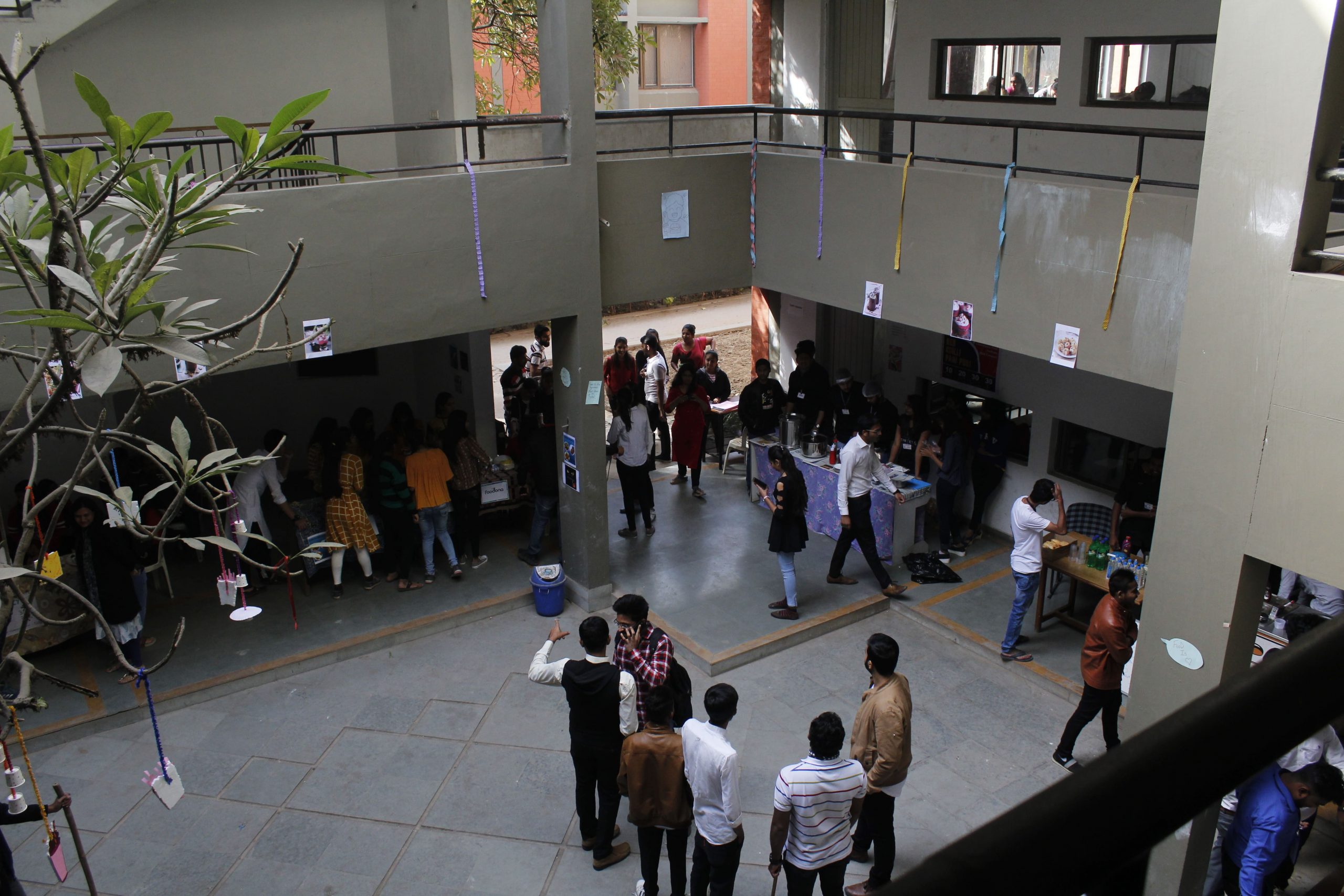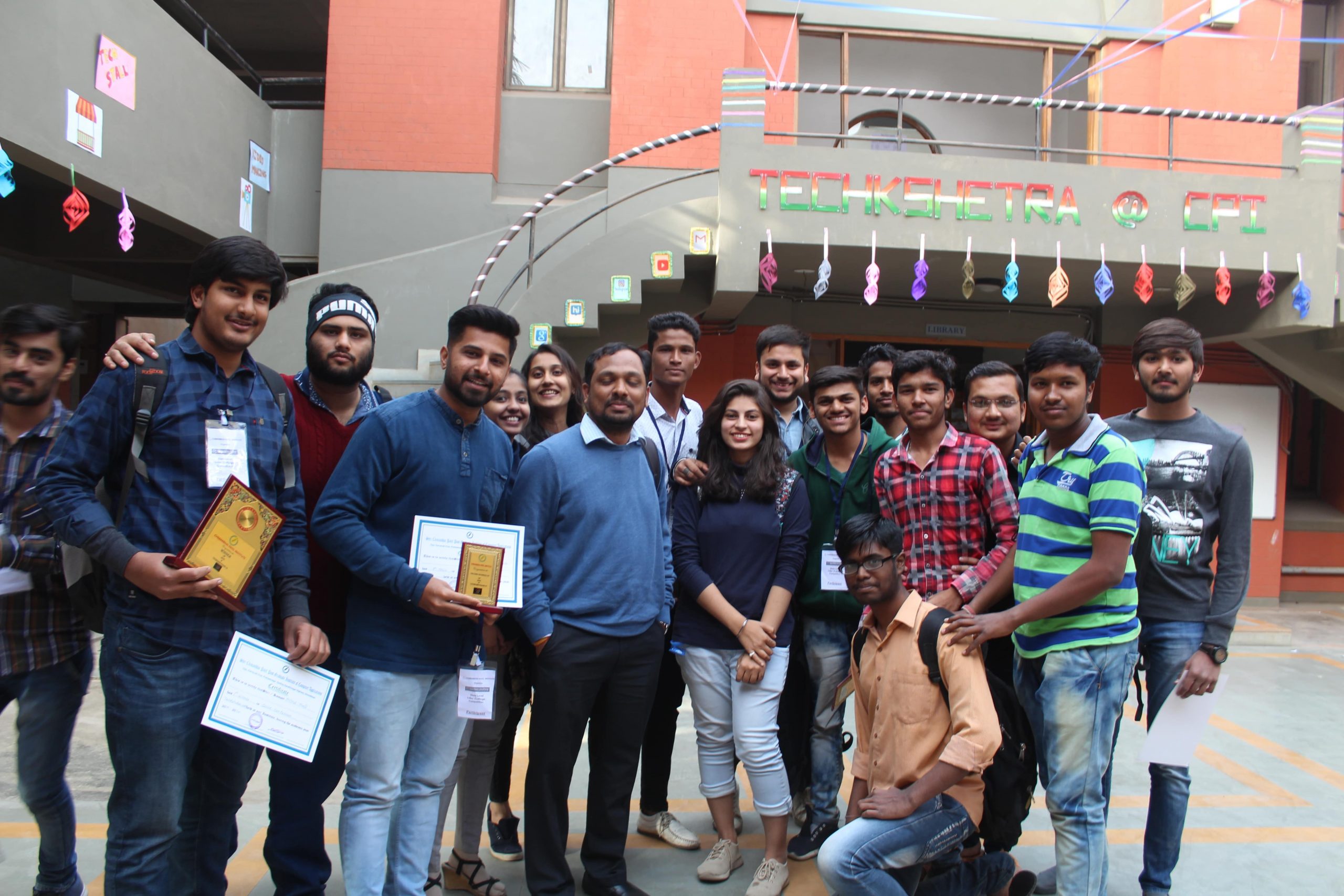WELCOME TO CHIMANBHAI PATEL POST GRADUATE INSTITUTE OF COMPUTER APPLICATIONS[CPPGICA]
PROGRAM INFO
General Info about MCA
Master of Computer Applications (MCA) is a two-year post-graduate program designed to meet the industry demand for qualified IT computer professionals working in application development and testing environment.
The course provides a sound academic base from which a career in computer applications can be developed. The program will cover both core and specialized subjects as well as industry project work. The course is a unique blend of both theoretical and practical knowledge which endows MCA students with an opportunity to work with diverse tools meant to develop better and faster applications.
The curriculum is designed as per the guidelines of the All-India Council for Technical Education (AICTE) and is updated regularly to ensure that it remains relevant and up to date with emerging technologies. The MCA programme aims at inculcating essential skills as demanded by the industry through an interactive learning process.

Program Educational Objectives (PEOs)
In the context of a complex, ever-changing, and dynamic environment:
• PEO 1: To impart sound knowledge of the latest technologies used in Computer Science.
• PEO 2: To imbibe the ability of designing, developing, modifying, and fine-tuning suitable computer applications.
• PEO 3: To imbibe the ability of gathering user requirements to write computer programs according to the customer needs.
• PEO 4: To solve practical problems using IT and computer related tools in the chosen area of specialization through electives.
• PEO 5: To build a pool of technically qualified manpower that can easily become productive in the industry.
• PEO 6: To develop professionals and leaders of high caliber imbibed with values of entrepreneurship, ethics, and social responsibility.

Program Outcomes
The program outcomes specify the knowledge, skills, values, and attitudes students are expected to attain at the end of program. The outcome of the program is expected to be achieved at the end of program as given below:
• Develop strong analytical and problem-solving skills to identify, formulate and solve complex computer science problems.
• Acquire knowledge of various programming paradigms, principles, and practices to design, develop, and maintain software systems.
• Develop effective communication and teamwork skills to collaborate with peers, clients, and stakeholders in the development of software applications.
• Acquire proficiency in various aspects of computer science, including algorithms, data structures, databases, networking, and security.
• Understand the importance of ethical, social, and legal issues in the development and deployment of software systems.
• Engage in continuous learning and keep up to date with emerging trends and technologies in the field of computer science.
• Develop the ability to design and implement software applications that meet user needs and are efficient, reliable, and maintainable.

Learning Pedagogy
Lecture-based Learning: Lectures are an important part of any MCA program. They provide students with an introduction to fundamental concepts, principles, and theories in computer science. Lectures can be delivered by experienced faculty members, industry experts, or through online platforms. Lectures can be augmented with multimedia presentations, case studies, and demonstrations.
Hands-on Assignments: Hands-on assignments are an important part of an MCA program. These assignments provide students with the opportunity to practice what they have learned and develop their practical skills. Assignments can include coding exercises, problem-solving tasks, research papers, and presentations.
Project-based Learning: Projects are a great way for students to gain practical experience and apply their knowledge to real-world problems. Projects can be completed individually or in groups. They can be focused on a specific technology or application domain. Projects can be supervised by faculty members or industry professionals.
Online Learning: Online learning has become an important part of modern pedagogy. Online learning can be used to deliver lectures, provide supplemental materials, facilitate discussions, and distribute assignments. Online learning can also be used to provide students with access to resources and tools that are not available on campus.
Experiential Learning: Experiential learning is a pedagogical approach that emphasizes the practical application of knowledge and skills. Experiential learning can include internships, field trips, service-learning projects, and other hands-on experiences. Experiential learning can help students develop critical thinking, problem-solving, communication, and leadership skills.
Research-based Learning: Research-based learning is an important part of any MCA program. Students are encouraged to participate in research activities, such as publishing papers, presenting at conferences, or collaborating with industry partners. Research-based learning can help students develop critical thinking, problem-solving, and communication skills.

Industrial Major Project

Career Opportunities after MCA
MCA (Master of Computer Applications) is a postgraduate degree program that offers a broad range of career opportunities in various fields.
Students can find rewarding careers with the government, software development companies, networking, animation, computer games, graphics design, and multimedia and information technology companies.
Students can find great success as entrepreneurs in freelancing, troubleshooter, data analyst; block chain fields, while others explore further education in a related doctoral program.

Here are some of the most popular career paths that MCA graduates can pursue:
• Software Developer: MCA graduates can work as software developers, developing and testing software applications and programs for various organizations.
• Web Developer: MCA graduates can also work as web developers, creating and maintaining websites, web applications, and e-commerce platforms.
• Data Scientist: MCA graduates with strong analytical skills can work as data scientists, analyzing complex data sets and providing insights and recommendations to organizations.
• Database Administrator: MCA graduates can also work as database administrators, managing and maintaining large databases for organizations.
• Information Security Analyst: MCA graduates with an interest in cybersecurity can work as information security analysts, designing and implementing security measures to protect organizations from cyber threats.
• Business Analyst: MCA graduates can also work as business analysts, helping organizations to identify areas for improvement and develop strategies for growth.
• Project Manager: MCA graduates can work as project managers, overseeing the planning, implementation, and delivery of various IT projects for organizations.
• IT Consultant: MCA graduates can also work as IT consultants, providing advice and guidance to organizations on various IT-related issues such as software development, systems integration, and data management.
• Mobile Application Developer: MCA graduates can work as mobile application developers, creating and testing mobile applications for various platforms such as iOS and Android.
• Cloud Architect: Cloud architects design and implement cloud computing solutions for organizations. MCA graduates with a specialization in cloud computing can pursue this career path.
• Quality Assurance Analyst: Quality assurance analysts are responsible for ensuring that software products meet quality standards and are free of defects. They develop and execute test plans, create test cases, and report defects to the development team. MCA graduates with a specialization in software testing or quality assurance can pursue this career path.
• Technical Writer: MCA graduates can also work as technical writers, creating user manuals, instruction guides, and other technical documentation for software applications and systems.
• Network Administrator: MCA graduates can work as network administrators, managing and maintaining computer networks and ensuring their security and performance.
Overall, MCA graduates have a wide range of career opportunities available to them, and they can choose a career path that aligns with their interests and strengths.

